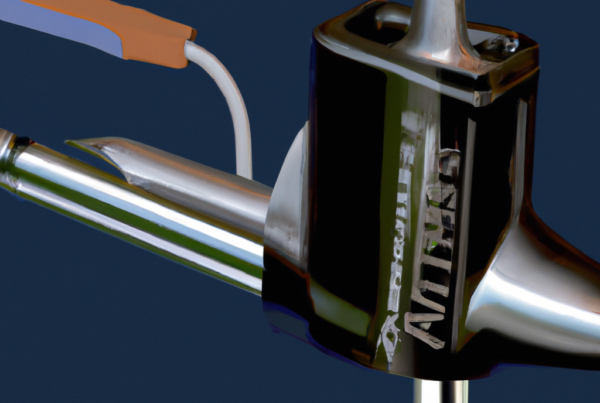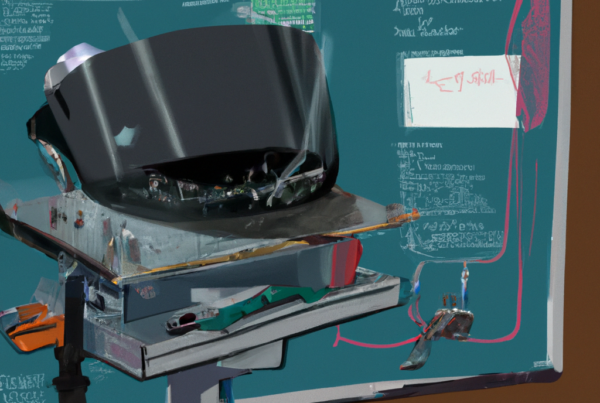Welding is an important and dangerous job that requires proper protection and safety. The question of what to wear while welding has been around for years. When it comes to welding, the best material to wear is cotton. But what about polyester, can you wear it while welding? The answer is complicated. Polyester is a synthetic material, and when exposed to heat, it can melt and ignite. Welding temperatures can reach up to 6,000 degrees Fahrenheit, making it unsafe to wear polyester. However, there are certain types of polyester blends that can be used in welding, depending on the type of welding you are doing. So, if you’re looking for a material that is flame-resistant, light-weight, and comfortable to wear, these polyester blends may be the answer.

What is Polyester Fabric?
Polyester fabric is a synthetic material made from petroleum-based materials. It is lightweight, durable, and wrinkle-resistant. Polyester is often used in clothing, furniture, and bedding. It is also a popular fabric for upholstery and drapery.
Polyester is a good choice for many types of clothing, from activewear to dress clothes. It is also often used for linings, as it is lightweight and doesn’t wrinkle easily. Polyester is not a natural fabric, so it is not as breathable as cotton or linen.
Polyester is also used in outdoor gear, such as camping tents and sleeping bags, because it is waterproof and can withstand a lot of wear and tear. It is also used in many industrial applications, such as conveyor belts, webbing, and ropes.
Can you wear polyester while welding? It is not recommended to wear polyester for welding due to the risk of sparks igniting the fabric. It is recommended to wear a flame-resistant fabric such as wool or cotton, or a synthetic material specifically designed for welding.
What are the Risks of Wearing Polyester While Welding?
Welding can be a dangerous profession and it is important to always wear the right protective gear. Wearing the wrong kind of clothing can lead to serious burns and other injuries. Wearing polyester while welding is not recommended as it is highly flammable and can easily catch fire. Here are some of the risks of wearing polyester while welding:
- Polyester is highly flammable and can ignite quickly and easily.
- It is not heat resistant and can melt, causing burns and other serious injuries.
- The fumes generated by welding can cause polyester to break down, releasing toxic chemicals.
It is best to avoid wearing polyester while welding and opt for cotton or leather protective clothing instead. This will help to reduce the risk of injury and keep you safe.
What Types of Clothing are Recommended for Welders?
Welders must wear proper clothing to protect themselves from heat, sparks, and other hazards. It is recommended that welders wear long-sleeved shirts and pants made of natural materials such as cotton or wool. It is also important to wear leather or flame-resistant cloth welding aprons, gloves, and boots.
It is not recommended to wear polyester while welding, as it can melt and cause serious burns. Synthetic fabrics such as nylon and rayon should also be avoided. Here is a list of clothing items that are recommended for welders:
- Long-sleeved shirt and pants made of natural materials such as cotton or wool
- Leather or flame-resistant cloth welding aprons
- Gloves
- Boots
- Goggles or face shield
- Hoods
It is important to always wear the proper safety gear while welding to protect you from potential hazards.
What Safety Measures Should Be Taken When Welding?
When welding, it is important to ensure your safety by following the proper safety procedures. Here are some safety measures to take when welding:
- Wear the proper safety gear, including a face shield, welding helmet, leather gloves, welding apron, and heavy-duty long pants and sleeves.
- Ensure you are in a well-ventilated area and keep flammable items away from the area.
- Check your equipment for proper operation before use.
- Use clamps to hold your work pieces in place.
- Be aware of your surroundings and keep your arms and hands away from the welding arc.
- Do not wear jewelry, synthetic fabrics, or any other flammable materials when welding.
Can you wear polyester while welding? No, it is not recommended to wear polyester or any other synthetic fabric while welding as they can easily catch fire.
What are the Alternatives to Polyester Fabric for Welders?
Welders should wear flame-resistant fabrics such as wool, cotton, and leather. Alternatives to Polyester fabric include:
- Wool: Wool is naturally flame-resistant and an excellent choice for welding garments.
- Cotton: Cotton is a lightweight, comfortable fabric that is also flame-resistant.
- Leather: Leather is a thick, durable fabric that is very flame-resistant.
- Nomex: Nomex is a synthetic fabric that is designed to be flame-resistant and is often used in welding garments.
- Kevlar: Kevlar is a synthetic fabric that is designed to be flame-resistant and is often used in welding garments.
These fabrics are all much better choices for welders than Polyester, which is not flame-resistant and can easily catch fire. It is not recommended to wear Polyester while welding.
Are There any Special Considerations for Welders Working with Synthetic Fabrics?
When working with synthetic fabrics, there are several special considerations for welders to keep in mind. Here are some tips for safely welding with polyester:
- Be sure to wear fire-resistant clothing when welding.
- Avoid wearing polyester or any other synthetic fabrics, as these may melt or catch fire from the heat of the weld.
- Be sure to keep your clothing and the welding area clear of any flammable materials.
- Ensure that the welding area is well-ventilated.
- Wear a face shield and welding helmet to protect your eyes and face from the intense light of the welding arc.
By following these safety guidelines, welders can ensure that they are safe and protected while welding with polyester or other synthetic fabrics.
Is There a Difference Between Polyester and Synthetic Fabrics?
Polyester and synthetic fabrics are two terms often used interchangeably in the fashion and textile industry; however, there are important differences between the two. Polyester is a type of synthetic fabric, meaning it is made from man-made materials, but not all synthetic fabrics are polyester. Here are some key differences between polyester and synthetic fabrics:
- Polyester is a specific type of synthetic fiber, but not all synthetic fabrics are polyester.
- Polyester is a more durable fabric than many other synthetic fabrics and is resistant to shrinking and wrinkling.
- Synthetic fabrics can be made from other materials such as rayon, nylon, and acrylic, while polyester is only made from petrochemical-based materials.
Can you wear polyester while welding? No, wearing polyester while welding is not recommended as it is a flammable material and can catch fire easily. It is best to wear a flame-resistant material such as wool or cotton when welding.
Are There any Other Important Considerations for Welders When Choosing Clothing?
When choosing clothing for welding, there are a few important considerations to keep in mind:
- Fabric: Cotton or wool is best, as synthetic fabrics like polyester can melt when exposed to high heat.
- Fit: Clothing should fit loosely for comfort and flexibility, but not so loosely that it can get caught in machinery.
- Protection: Welders should wear long sleeves, long pants, and an apron or other protective gear to protect against sparks and spatter.
- Visibility: Bright colors and reflective materials can help welders stay visible while working.
Can you wear polyester while welding? No, polyester and other synthetic fabrics can melt when exposed to high heat, so it is not recommended. Cotton or wool is best for welding clothing.
Are There any Special Precautions that Should Be Taken When Wearing Polyester While Welding?
When welding, it is important to take special precautions when wearing any type of clothing, especially polyester. Polyester is a synthetic fabric that can melt and ignite when exposed to high temperatures. As such, welders should not wear any polyester clothing when welding and instead opt for natural fabrics such as cotton and wool. Here are a few additional precautions to take when welding while wearing polyester:
- Wear protective gear, such as a welding apron, gloves, and a welding helmet.
- Avoid wearing any loose clothing, such as scarves, that could come into contact with the welding arc.
- Remove any jewelry or other metal objects that could become hot and cause burns.
- Wear fully-enclosed shoes that are non-flammable.
- Keep a fire extinguisher nearby in case of an emergency.
By taking these steps, welders can ensure their safety while welding and minimize the risk of injury.
What Are the Best Practices for Welders Working with Polyester Fabric?
Welders working with polyester fabric should always keep these best practices in mind:
- Always wear appropriate protective gear, including gloves, safety goggles, and a face mask.
- Ensure that the workspace is well-ventilated and free of any flammable materials.
- Keep welding torches and other tools away from the fabric.
- Always use the correct welding torch with the right temperature setting, to avoid damaging the fabric.
- Keep welding torches and tools away from combustible materials.
- Ensure that the fabric is clean and free of dirt or other debris before welding.
- Always double-check the welding settings before starting work.
- Test the welding on a scrap piece of fabric before welding on the main fabric.
- Make sure to clean up any splatters or spills immediately.
Can you wear polyester while welding? No, it is not advisable to wear polyester while welding as the heat from the torch can ignite the material and cause severe burns.



